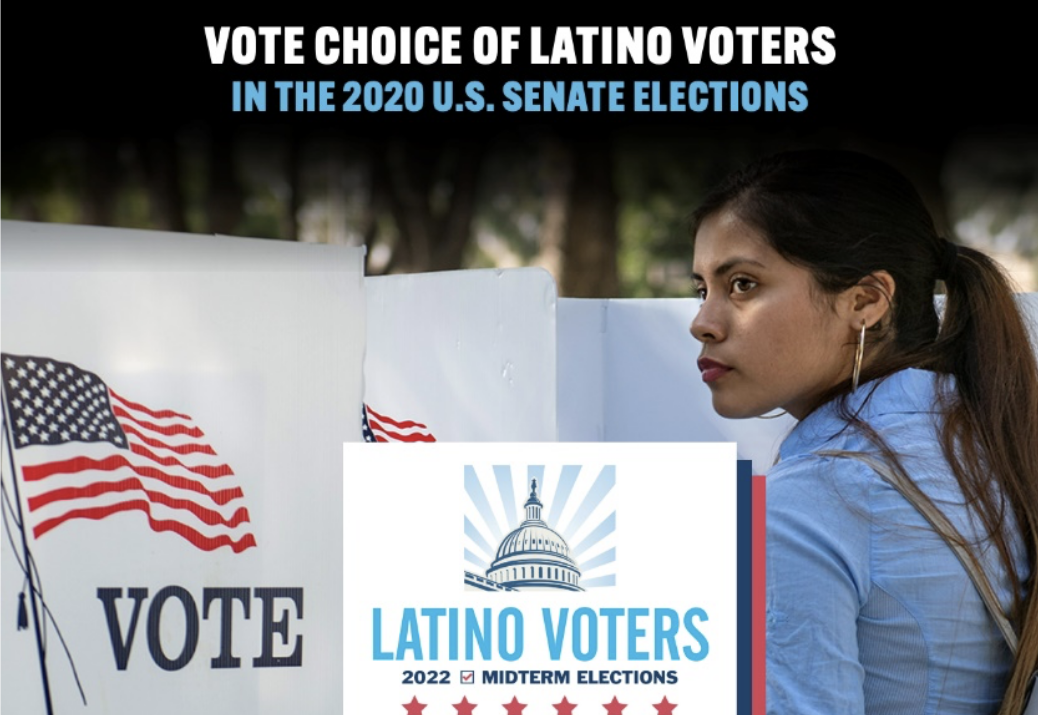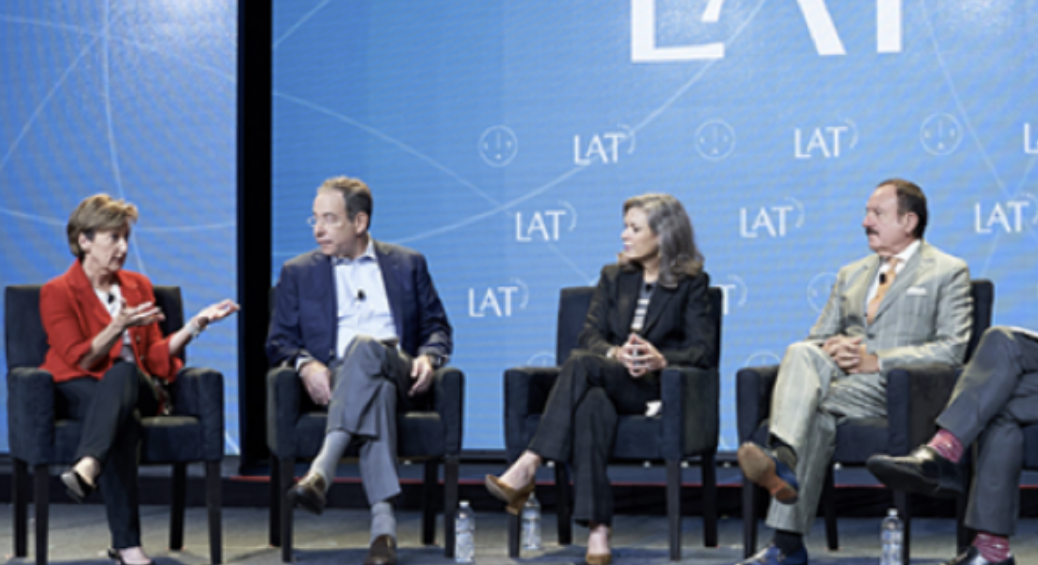AUGUST, 2022
Growth in U.S. Latino Buying Power Is Greater Than Rest of U.S.
According to research done by the University of Georgia’s Selig Center for Economic Growth, the previous decade laid quite a foundation for the next ten years for U.S. Latino growth, not just in population, but also in economic contribution to our country. From 2010 to 2020 the combined buying power of U.S. Latinos grew by over 87%, significantly greater than the 55% growth of U.S. consumers as a whole. The Center’s analysis also found that persons of Mexican origin accounted for 56% of that buying power.
As of 2020, the ten states with the largest Latino markets are:
California – $506 billion
Texas – $361 billion
Florida – $208 billion
New York – $139 billion
New Jersey – $70 billion
Illinois – $68 billion
Arizona – $63 billion
Colorado – $40 billion
New Mexico – $32 billion
Washington – $31 billion
In terms of population growth, the states with the fastest growth in Latino population during the past decade were:
North Dakota – 206%
South Dakota – 136%
Montana – 133%
Idaho – 121%
District of Columbia – 119%
New Hampshire – 118%
Oregon – 115%
Washington – 114%
Massachusetts – 113%
Pennsylvania – 112%
California (15,754,605), Texas (11,857,401), and Florida (5,830,908) were the states with the largest U.S. Latino populations in 2021.
Los Angeles County had the largest U.S. Latino population (4,824,989) in 2021, followed by Harris County, Texas, with 2,097,602 and Miami-Dade County, Florida, with 1,838,864.
Government Jobs Abound, But Workers Don’t
The number of U.S. Latino workers in the labor force has grown from 10.7 million in 1990 to 29.0 million in 2020, and is projected to reach 35.9 million in 2030.
U.S. Latinos are projected to account for 78% of net new workers between 2020 and 2030. In 2030, the Bureau of Labor Statistics projects U.S. Latinos will account for 1 out of every 5 workers in the labor force.
In the Federal Government, however, U.S. Latinos make up only about 10% of all permanent Federal Employees according to the U.S. office of Personnel Management.
According to a Federal Jobs report released last month, while the number of private-sector jobs has actually surpassed its pre-pandemic level, there are 664,000 fewer people employed in the public sector. There’s an unusually high number of government job openings at the federal, state and local levels.
Because people have fled the public sector for the private sector, where signing bonuses and faster wage growth have been far more accessible, government entities have only recovered about 54% of the jobs lost to the pandemic and government employers are competing for workers in an ever-tightening labor market where most of the labor force growth is coming from U.S. Latinos.
U.S. Latinos Can Play A Key Role In Midterm Elections
The UCLA Latino Policy and Politics Institute has released a new report finding that Latino voters played a critical role in Senate election outcomes in 2020 and will be a key electorate in the 2022 midterm elections. The report examines the choice of Latino voters in recent Senate elections in five key states (Arizona, Colorado, Georgia, New Mexico and Texas). In all these states, Latino voters supported the Democratic senate candidates by wide margins and by comparable margins to Biden in the 2020 Presidential Election.
The report also demonstrates that despite overwhelming support for Democratic candidates among Latino voters, there is a sizable number who are persuadable swing voters. These swing voters are a critical segment in this year’s midterm elections in states like Arizona and Georgia that are currently rated as “toss up” races. Latino voter turnout in 2022 will depend heavily on continued investments in direct voter engagement and outreach by campaigns.
Highlights from each state included in the report are as follows.
ARIZONA: U.S. Latinos represent about one-quarter (25.2%) of Arizona’s registered voters, making them the second largest racial or ethnic voting bloc. Latino voters supported the Democratic candidates for U.S. President and Senate in Arizona by a 3-1 margin over their Republican rivals.
COLORADO: The U.S. Census estimates that 315,000 Latino voters cast a ballot in Colorado in November 2020, While accounting for 10.4% of the state’s registered voter population. Latino voters supported the Democratic candidates for U.S. President and Senate in Colorado by a 3-1 margin over their Republican rivals.
GEORGIA: An estimated 178,000 Latinos in Georgia voted in the 2020 election, representing 3.6% of the state’s voters and were pivotal in the Presidential election, which in Georgia was decided by fewer than 12,000 votes. U.S. Latino voters in Georgia supported the Democratic candidates for U.S. Senate by a 3-1 margin over their Republican rivals, and supported Joe Biden at a 2-1 margin over Donald Trump.
NEW MEXICO: U.S. Latinos in New Mexico represent 38.9% of the state’s total registered voters and the U.S. Census Bureau estimates that 290,000 voted in the 2020 general election. Latino voters in New Mexico supported the Democratic candidates for U.S. Senate and President by a 2-1 margin over their Republican rivals.
TEXAS: Slightly more than 5 million Latinos were eligible to vote in Texas during the 2020 election, representing 28.4% of the state’s eligible voter population. Latino voters in Texas supported the Democratic candidates for U.S. Senate and President by more than a 2-1 margin over their Republican rivals.
Heading into the 2022 midterm election cycle, candidates from all political parties must understand the growing importance of this electorate and the need to invest in culturally competent and sustained voter engagement and mobilization strategies if they want to earn their votes.
Magnum P.I. is moving to NBC
Magnum P.I. stars Jay Hernandez as Thomas Magnum, a decorated former Navy SEAL who, upon returning home from Afghanistan, repurposes his military skills to become a private investigator. A charming rogue, an American hero and a die-hard Detroit Tigers fan, Magnum has become a hit series, but was cancelled by CBS in May.
NBC has announced it is picking up the show and extending it by at least 20 episodes to be spread across two seasons. Along with Hernandez, the entire cast of the Magnum P.I. series is expected to return. Now fans can look forward to continuing to enjoy Hernandez as Thomas Magnum, with keys to a vintage Ferrari in one hand, aviator sunglasses in the other, and an Old Düsseldorf longneck chilling in the fridge, taking on the next case.
Former DACA Recipient Receives White House Appointment
Cindy Nava, a once-undocumented immigrant from Mexico, has been appointed as the senior policy adviser to the secretary of the U.S. Department of Housing and Urban Development. She is one of the first former DACA recipients to receive a White House presidential appointment.
Born in Chihuahua, Mexico, Nava was brought to New Mexico as a child and grew up in Albuquerque and Santa Fe. As reported in AXIOS, she got involved in politics immediately after high school and worked in the New Mexico Statehouse on behalf of Democratic lawmakers, but because she was undocumented, she could not get paid for her work. She eventually enrolled in the Deferred Action for Childhood Arrivals (DACA) program and became a U.S. citizen through marriage.
In an interview with AXIOS, Nava said her new role comes after years of insecurities about her immigration status, her accent,
and a nagging feeling of never feeling good enough despite her years of experience.
L’ATTITUDE Can Help You Think Like A CEO
The annual L’ATTITUDE event, celebrating its fifth year as the country’s leading business event focused on the New Mainstream Economy, is scheduled September 22 – 25 in San Diego and will feature CEOs from some of the world’s most recognizable brands including Nike, Target, and Sony Pictures Entertainment.
Those who attend L’ATTITUDE will be able to gain insights from CEOs like John Donahoe, President & CEO of Nike, Inc.; Brian Cornell, Board Chairman & CEO of Target; and Tony Vinciquera, Chairman & CEO of Sony Pictures Entertainment – all of whom are making an impact in the New Mainstream Economy by understanding the power and influence of the U.S. Latino cohort.
Each of the many CEOs to be heard at L’ATTITUDE will provide enlightening insights about why they are leaders in their respective industries and how they are increasing their bottom line by focusing their business strategies on the U.S. Latino cohort.
This unique learning experience with the worlds top leaders and brands will help you learn new marketing tactics, understand distribution and supply chain management, and how to apply market-based facts and data to your own business to help you grow your bottom line.






